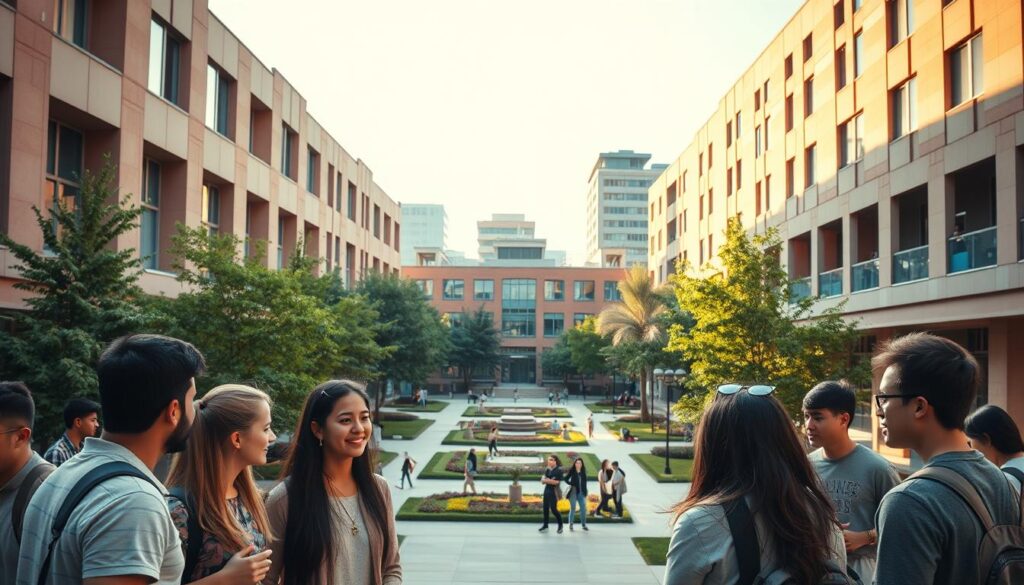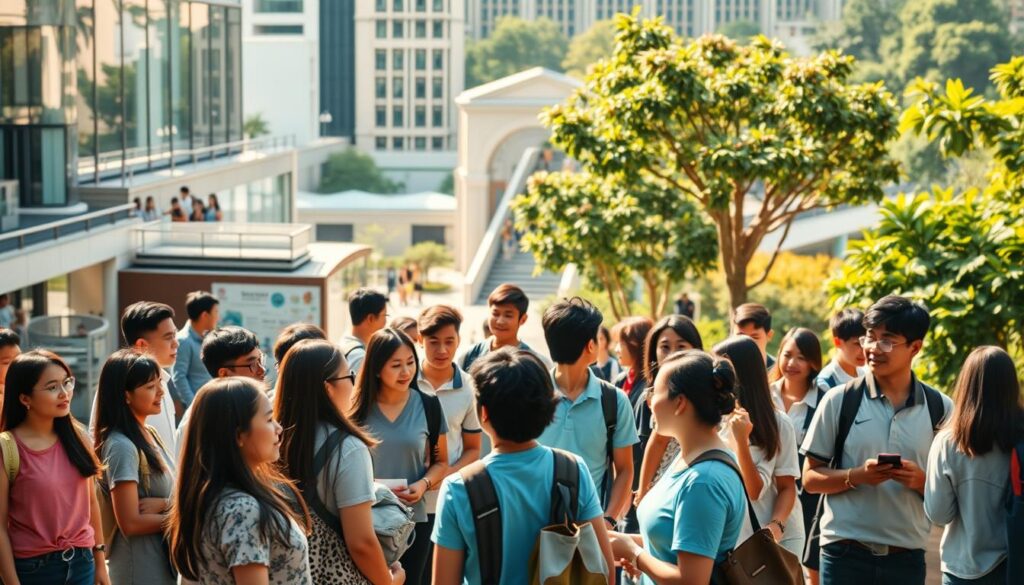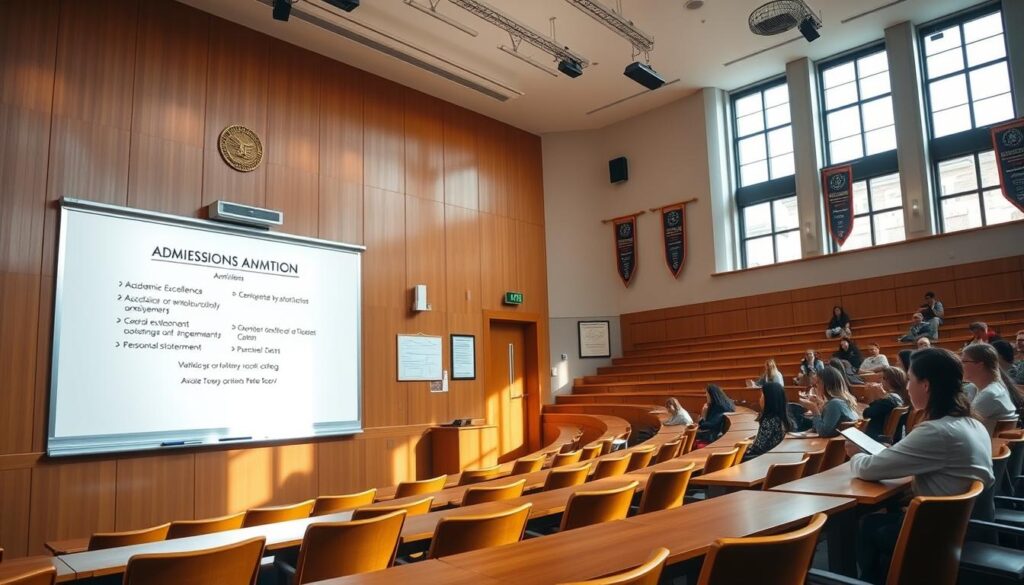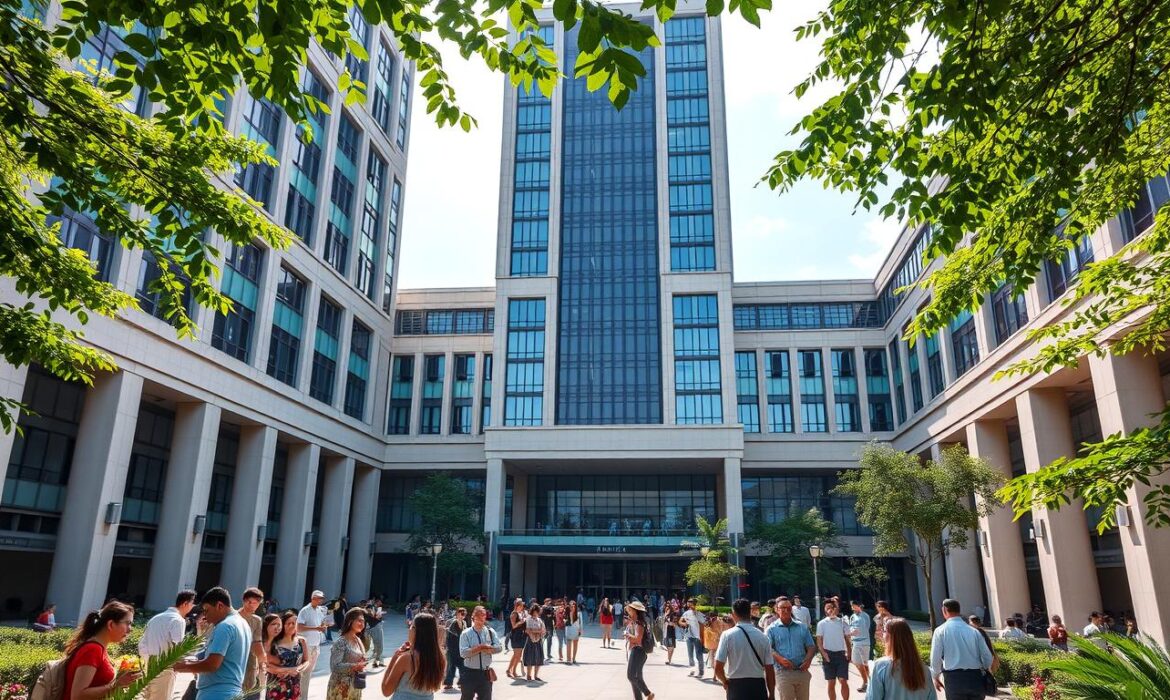Choosing the right educational path is a critical decision for students and their families. In Singapore, the junior college landscape is highly competitive, with institutions offering diverse opportunities for academic and personal growth. Understanding the factors that make a junior college stand out can help families make informed choices.
Key evaluation criteria include academic performance, such as A-Level or IB results, the quality of facilities, and the success of extracurricular programs. These elements contribute to a well-rounded education, preparing students for future challenges. Rankings often combine cut-off points, MOE data, and holistic development factors to provide a comprehensive view.
Top contenders like Raffles Institution and Hwa Chong Institution consistently excel in these areas. This guide aims to help families align their choices with student strengths and goals, ensuring a fulfilling educational experience. For more detailed insights, check out this comprehensive ranking.
Key Takeaways
- Singapore’s junior colleges are known for their competitive and high-quality education.
- Academic performance, facilities, and extracurricular success are key evaluation criteria.
- Rankings consider cut-off points, MOE data, and holistic development factors.
- Top institutions include Raffles Institution and Hwa Chong Institution.
- This guide helps families align choices with student strengths and goals.
Introduction to Junior Colleges in Singapore
Junior colleges play a pivotal role in shaping students’ academic futures. These institutions offer a two-year programme focused on preparing students for the A-Level or International Baccalaureate (IB) exams. Unlike polytechnics, which emphasize vocational training over three years, junior colleges provide a more academic-focused pathway.
Each January, the Joint Admissions Exercise (JAE) allows students to apply to junior colleges based on their O-Level results. Seventeen junior colleges participate in this process, with two offering the IB programme: Anglo-Chinese School (Independent) and St. Joseph’s Institution. For those with specialized talents, the Direct School Admission for Junior Colleges (DSA-JC) offers an alternative route.
Millennia Institute stands out with its three-year A-Level track, catering to students who may need additional time to prepare. Meanwhile, three schools—NUS High School, School of the Arts (SOTA), and Singapore Sports School—bypass the JAE process entirely, focusing on niche areas of study.
| Institution Type | Programme Duration | Key Features |
|---|---|---|
| Junior College | 2 Years | A-Level/IB preparation |
| Millennia Institute | 3 Years | Extended A-Level track |
| Specialized Schools | Varies | Focus on arts, sports, or science |
Choosing the right junior college depends on a student’s academic goals and interests. Whether through JAE, DSA-JC, or specialized schools, there are multiple pathways to success.
Why Choosing the Right JC Matters
The decision to select the right junior college can shape a student’s future in profound ways. It’s not just about academic results but also about personal growth and long-term opportunities. With 70-80% of tuition students achieving As and Bs, the right choice can significantly impact a student’s learning journey.
One of the key factors to consider is university admissions. Top institutions like NUS and NTU often have specific course prerequisites. A strong junior college background can help students meet these requirements and secure their desired programs.

Another advantage is the network effect. Alumni connections from top junior colleges like Raffles Institution and Hwa Chong Institution can open doors to internships, mentorships, and career opportunities. These networks often play a crucial role in a student’s professional development.
Specialized programs also make a difference. For example, Raffles Institution’s Bi-cultural China Programme and Hwa Chong Institution’s Computing Talent Programme offer unique learning experiences. These programs help students develop specialized skills that set them apart in competitive fields.
Mental health is another critical factor. Junior colleges like Catholic Junior College offer support systems like the Ignite Programme, ensuring students thrive in a supportive environment. Such initiatives help students manage stress and maintain a healthy balance.
Finally, leadership initiatives like Victoria Junior College’s Servant Leadership Programme provide long-term career advantages. These programs focus on building essential skills such as teamwork, communication, and problem-solving.
| Factor | Impact |
|---|---|
| University Admissions | Meets NUS/NTU prerequisites |
| Network Effects | Access to alumni connections |
| Specialized Programs | Develops unique skills |
| Mental Health Support | Ensures a balanced environment |
| Leadership Initiatives | Builds career-ready skills |
Choosing the right junior college involves considering these factors to ensure a well-rounded education. For more insights, check out this comprehensive guide.
Top 10 Junior Colleges in Singapore
Junior colleges are more than just academic institutions; they are hubs of holistic development. These schools offer a blend of rigorous academics, extracurricular activities, and leadership opportunities. Below, we explore the top 10 junior colleges that stand out for their unique programmes and achievements.

Raffles Institution
With a 200-year heritage, Raffles Institution is renowned for its academic excellence. The Raffles Humanities Programme and a 2025 Arts cut-off of 5 L1R5 highlight its commitment to diverse learning paths.
Hwa Chong Institution
Hwa Chong Institution offers a bilingual IB option and global exchanges through its Global EduHub. These programmes prepare students for international opportunities.
Nanyang Junior College
Known for its MSLO leadership framework, Nanyang Junior College emphasizes character development alongside academics. This approach fosters well-rounded individuals.
Victoria Junior College
Victoria Junior College excels in the arts, with an 85% distinction rate in its Drama Elective Programme. This focus on creativity complements its strong academic foundation.
Eunoia Junior College
As a merger legacy, Eunoia Junior College stands out with its STEM Research Programme and Passion Pursuit initiative. These programmes encourage innovation and personal growth.
Temasek Junior College
Temasek Junior College is known for its Mazarin Community Leadership Programme. This initiative nurtures leadership skills through community engagement.
Dunman High School (JC Division)
With SAP school status, Dunman High School offers a Music Elective Programme that has been running since 1982. This focus on the arts enriches its academic offerings.
National Junior College
National Junior College is one of the oldest institutions, known for its strong academic track record and diverse extracurricular activities.
Anglo-Chinese Junior College
Anglo-Chinese Junior College combines academic rigour with a focus on character development. Its programmes prepare students for both university and life beyond.
St Andrew’s Junior College
St Andrew’s Junior College offers a supportive environment with a focus on holistic education. Its programmes encourage students to excel academically and personally.
| Junior College | Unique Programmes |
|---|---|
| Raffles Institution | Raffles Humanities Programme |
| Hwa Chong Institution | Global EduHub Exchanges |
| Nanyang Junior College | MSLO Leadership Framework |
| Victoria Junior College | Drama Elective Programme |
| Eunoia Junior College | STEM Research Programme |
| Temasek Junior College | Mazarin Community Leadership Programme |
| Dunman High School | Music Elective Programme |
| National Junior College | Diverse Extracurricular Activities |
| Anglo-Chinese Junior College | Character Development Programmes |
| St Andrew’s Junior College | Holistic Education Focus |
Unique Programs Offered by Top JCs
Top junior colleges offer unique programs that go beyond academics, fostering innovation and personal growth. These initiatives help students develop specialized skills and prepare for future challenges.
Raffles Institution stands out with its Overseas Science Research Attachment. Students gain hands-on experience in labs across Israel and Germany, enhancing their research capabilities.
Hwa Chong Institution collaborates with NAFA for its Art Elective Programme. This initiative blends creativity with culture, offering students a unique artistic perspective.
Eunoia Junior College provides the GLIDE programme, which includes overseas internships. These opportunities focus on leadership and global readiness, preparing students for international careers.

St Andrew’s Junior College uses the 5 ‘I’s Framework pedagogy. This approach emphasizes inquiry, innovation, and integration, fostering a well-rounded education.
River Valley High School offers a Balanced Education Curriculum. It focuses on cognitive interest development, ensuring students excel academically and personally.
| Junior College | Unique Programme |
|---|---|
| Raffles Institution | Overseas Science Research Attachment |
| Hwa Chong Institution | Art Elective Programme |
| Eunoia Junior College | GLIDE Overseas Internships |
| St Andrew’s Junior College | 5 ‘I’s Framework Pedagogy |
| River Valley High School | Balanced Education Curriculum |
These programs highlight the commitment of top junior colleges to nurturing talent and innovation. For more insights, explore this comprehensive guide.
Admission Criteria for Junior Colleges
Understanding the admission process for junior colleges is essential for students aiming to secure a spot in their preferred institution. Admission criteria are designed to assess academic readiness and potential, ensuring students are well-prepared for the rigorous environment.
L1R5 Score Requirements
The L1R5 score is a key factor in junior college admissions. It is calculated using the formula: L1 (English or Higher Mother Tongue language) + R1 (Humanities) + R2 (Math/Science) + R3 (Any subject) + 2 best subjects. A lower L1R5 score increases the chances of admission to top institutions.
Subject Prerequisites
Certain subjects have minimum grade requirements for specific courses. For example, a B4 grade is required for H2 Math, while a C6 is the minimum for English. Meeting these prerequisites ensures students are prepared for advanced coursework.

Bonus Points and Conditional Admission
Students can earn up to 4 bonus points through CCA excellence, Higher Mother Tongue language proficiency, or school affiliation. For example, 2 points are awarded for CCA Excellence and another 2 for an A1 in Higher Mother Tongue.
Conditional admission is available for students who need to retake O-Level results by JC Year 1. Additionally, Millennia Institute has specific transfer rules for students who do not meet initial conditions.
By understanding these criteria, students can better navigate the admission process and align their academic strengths with institutional expectations.
Facilities and Extracurricular Activities
Facilities and extracurricular activities are vital components of a well-rounded junior college experience. These elements not only enhance learning but also provide students with opportunities to explore their passions and develop new skills.
Raffles Institution recently completed a $20 million renovation of its STEM Wing, offering state-of-the-art labs and collaborative spaces. Similarly, Yishun Innova Junior College has integrated IoT systems into its smart classrooms, creating a dynamic learning environment.
Hwa Chong Institution’s Cultural Centre features an 800-seat theater, fostering creativity and performance arts. Meanwhile, Nanyang Junior College provides access to a CRISPR research lab, encouraging students to engage in cutting-edge scientific exploration.
Anglo-Chinese Junior College boasts an Olympic-size pool and hydrotherapy facilities, supporting both sports and wellness. These amenities ensure students have the resources they need to excel in their chosen fields.
Extracurricular activities also play a significant role. Victoria Junior College’s national champion dance troupe is a testament to the school’s commitment to the arts. Temasek Junior College’s marine biology wet labs offer hands-on learning experiences, inspiring future scientists.
| Institution | Facility |
|---|---|
| Raffles Institution | Renovated STEM Wing |
| Yishun Innova Junior College | Smart Classroom IoT Systems |
| Hwa Chong Institution | Cultural Centre with 800-seat Theater |
| Nanyang Junior College | CRISPR Research Lab |
| Anglo-Chinese Junior College | Olympic-size Pool & Hydrotherapy Facilities |
| Victoria Junior College | National Champion Dance Troupe |
| Temasek Junior College | Marine Biology Wet Labs |
These facilities and activities highlight the commitment of junior colleges to providing a holistic education. They ensure students are well-prepared for both academic and personal success.
Academic Performance and Rankings
Academic success is a cornerstone of junior college education, shaping future opportunities. Understanding performance metrics and rankings helps students and families make informed decisions.
The 2025 JAE cut-off ranges highlight the competitiveness of top schools. Raffles Institution (RI) leads with a range of 2-5, followed by Hwa Chong Institution (HCI) at 3-6 and Eunoia Junior College (EJC) at 4-7. These figures reflect the academic rigor and selectivity of these institutions.
When comparing results, RI stands out with an 85% distinction rate in the 2023 A-Level exams, while National Junior College achieved 78%. For IB Diploma averages, Anglo-Chinese School (Independent) scored 41/45, surpassing St. Joseph’s Institution at 38/45.
Subject-specific strengths also play a role. Nanyang Junior College boasts a 92% distinction rate in H2 Math, showcasing its focus on STEM excellence. Meanwhile, Jurong Pioneer Junior College’s value-added metrics highlight a 15% improvement in cohort tracking, emphasizing its commitment to student growth.
- RI: 85% A-Level distinctions (2023)
- ACSI: 41/45 IB Diploma average
- NYJC: 92% H2 Math distinction rate
- JPJC: 15% cohort improvement
These rankings and results provide a clear picture of academic excellence, helping students align their goals with the right institution.
Tips for Choosing the Best JC for You
Finding the right fit for your education can make all the difference in your future. Junior colleges offer diverse opportunities, but aligning your choice with your goals is key. Here are some practical tips to guide you.
Start by attending open houses. Events like Eunoia’s annual Passion Fest give you a firsthand look at campus life and programs. These visits help you gauge if the environment matches your interests and learning style.
Analyze travel times. Commuting between Jurong Pioneer and Yishun Innova, for example, can impact your daily routine. A shorter commute means more time for studies and extracurriculars.
Match your strengths to the right institution. Arts-focused students thrive at Victoria Junior College or Temasek Junior College, while STEM enthusiasts excel at Raffles Institution. Consider whether the A-Level or IB path aligns with your academic goals.
Don’t overlook the value of alumni networks. Platforms like LinkedIn connect you with graduates who can share insights and offer support. Their experiences can help you make an informed choice.
| Tip | Benefit |
|---|---|
| Attend Open Houses | Explore campus life and programs |
| Analyze Travel Times | Save time for studies and activities |
| Match Strengths | Align with your interests and goals |
| Consider IB vs A-Level | Choose the right academic path |
| Consult Alumni Networks | Gain insights and support |
By following these tips, you can make a confident decision that sets you up for success. Your junior college journey should reflect your interests and aspirations, ensuring a fulfilling experience.
Conclusion
Your junior college journey is a transformative experience that shapes your academic and personal growth. Institutions like Raffles Institution and Hwa Chong Institution excel in rigorous academics, while Eunoia Junior College stands out for its innovative programs. Early preparation, such as targeting specific O-Level scores, is crucial for securing a spot in your preferred school.
Visiting campuses and exploring DSA-JC applications can provide valuable insights into the environment and culture. Strategic tuition partnerships can also enhance your preparation, ensuring you’re ready for the challenges ahead.
Take the first step toward your success by planning your enrollment carefully. This journey is not just about academics but also about personal development and building a foundation for future opportunities. Start today to make the most of your junior college experience.

